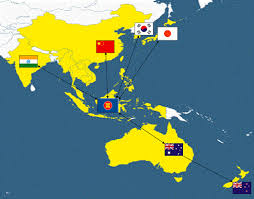Dr Belinda Townsend, Dr Pat Ranald and Dr Deborah Gleeson
Click here for full document (PDF). Excerpted IP and ISDS Sections Follow:
Leaked negotiating texts by Japan and South Korea for an intellectual property (IP) chapter in RCEP are particularly alarming. The two countries appear to act as a proxy for the international pharmaceutical industry by seeking stringent IP measures that go beyond those required in the Trade-Related Aspects of Intellectual Property Rights agreement (TRIPS) and that are similar to some aspects of the leaked TPP IP chapter. These include measures to extend patent terms and data exclusivity – further delaying generic entry, to broaden the scope of patentability – making it easier to obtain patent monopolies, and measures to apply IP ‘in-transit’ – threatening the global trade of legitimate lifesaving generic medicines. See a short analysis here. IP proposals from ASEAN and India have also been leaked and these proposals contain wording that is much more consistent with public health objectives.
We understand that there is now a consolidated intellectual property chapter text in which the stringent Japanese and South Korean proposals are bracketed – meaning they are not agreed to by the negotiating countries but not yet taken off the table. The proposals would be disastrous not only for least developed countries – middle income countries that are already paying high prices would pay even more. If India and China were to agree, access to medicines could be hampered across the globe.
Negotiating countries are also considering signing up to other international IP agreements including many World Intellectual Property Organization treaties as part of RCEP. Agreements such as the Patent Law Treaty (2000) which harmonizes procedural aspects of patent law may curtail flexibilities such as those in the current Indian patent system to prevent the patenting of known medicines.
Investor-state dispute settlement
We understand that the Ministers have agreed in principle to include an Investor-State Dispute Settlement (ISDS) in RCEP. Legal scholars and civil society groups have raised serious concerns over public health and other ‘safeguards’ proposed for ISDS in the TPP and argued that the most effective way to protect health, environment and other public interest regulation is not to include ISDS in trade agreements.
We understand that there have been ISDS proposals tabled by Korea and Japan which are likely to be similar to those in their own bilateral agreements and in the TPP leaked text. There is as yet no consolidated text and other governments like India and China are likely to table different proposals or concept papers based on their own experience. The Indian government is currently considering a revised draft Bilateral Investment Treaty which considerably reduces investor rights compared with other version of ISDS. However this could be substantially revised as a result of comments from an Indian consultation process with industry and civil society groups. ISDS will be discussed at the next round of negotiations in mid-October in Pusan, Korea.
Click here for full NGO briefing (PDF)





